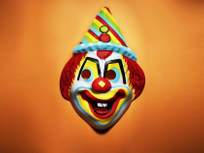Word of the Day
: February 1, 2012heyday
playWhat It Means
: the period of one's greatest popularity, vigor, or prosperity
heyday in Context
In its heyday, the circus was a major form of entertainment for small-town America.
"Here is Hemingway both in his heyday, soaring on the accolades of The Sun Also Rises and A Farewell to Arms, and his decline, precipitated by alcoholism and two airplane crashes that may have well left him with undiagnosed brain injuries." -- From a blog post by Alexander Nazaryan on the New York Daily News’ PageViews blog, December 13, 2011
Did You Know?
In its earliest appearances in English, in the 16th century, "heyday" was used as an interjection that expressed elation or wonder (similar to our word "hey," from which it derives). Around the same time, "heyday" saw use as a noun meaning "high spirits." (This sense can be seen in Act III, Scene IV of Hamlet, when the Prince of Denmark tells his mother, "You cannot call it love; for at your age / The heyday in the blood is tame….") It wasn’t until the 18th century that English speakers, perhaps interpreting the "day" of the second syllable to mean "a time or period," began using "heyday" to refer to the period when one’s achievement or popularity has reached its zenith.
Test Your Vocabulary
What is the meaning of the adjective "palmy"? The answer is ...
More Words of the Day
-
Apr 21
bodacious
-
Apr 20
resurrection
-
Apr 19
fastidious
-
Apr 18
collaborate
-
Apr 17
uncouth
-
Apr 16
adversity











